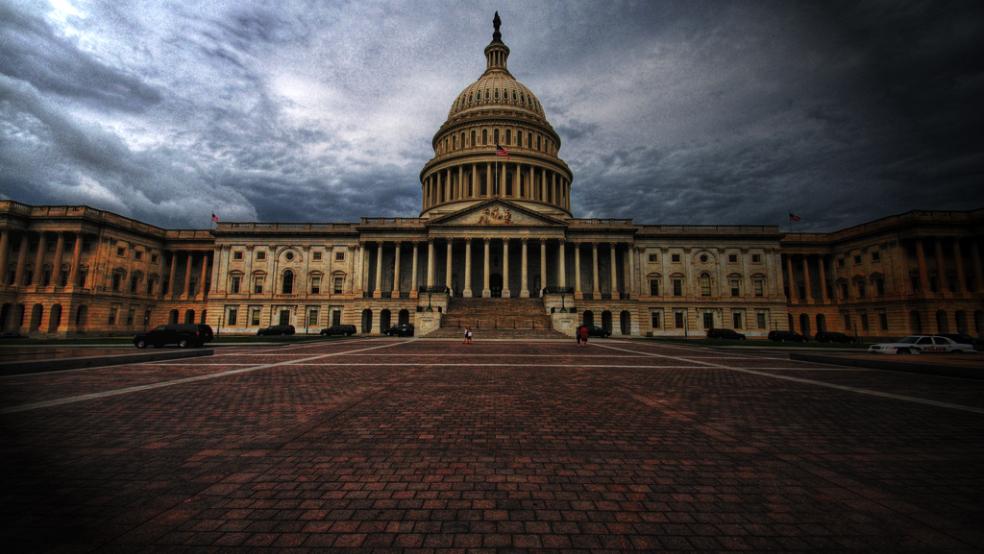House Speaker John Boehner (R-OH) and other Republicans on pushed back against the president’s proposed strategy to combat ISIS on Sunday setting up a likely fight between the White House and Congress over how to defeat the terror network.
Last week, the president sent lawmakers a draft war powers resolution asking lawmakers to authorize the use of military force against ISIS, which has taken control of large territories in Syria and northern Iraq. This will be the first time Congress will be asked to approve a war since the 2002 vote to authorize the Iraq war.
Related: The Tide is Turning Against ISIS in Iraq
The president’s request includes a three-year Authorization for Use of Military Force (AUMF). Its language is intentionally vague, but includes wording that limits the use of U.S. ground troops in an effort to appease critics that warn against mission creep.
However, Republicans don’t think it goes far enough to effectively combat ISIS.
Speaking on “Fox News Sunday,” Boehner said the White House’s proposed war powers resolution is too narrow to defeat ISIS.
“In addition to a robust authorization, I think we need to have a robust strategy and I don’t believe what the president sent here gives him the flexibility or the authority to take on this enemy and to win,” Boehner said.
Senate Foreign Relations Committee Chairman Sen. John McCain (R-AZ) parroted Boehner’s criticism of Obama’s request—saying it restricts military use too much.
Related: How Far Will GOP Presidential Hopefuls Go to Destroy ISIS?
“It’s probably appropriate to have the debate. But the president hasn’t come forward with a plan or a strategy for us to have success,” McCain said on NBC’s “Meet The Press.” “In his proposal, [Obama] left out [Syrian President] Bashar al-Assad, which is really amazing in that we are training young Syrians to go in and fight against Bashar al-Assad.”
Boehner said he would vote to approve war authorization if the president broadened his request.
“My first vote in the Congress was to give George Herbert Walker Bush the authority to drive Saddam Hussein out of Kuwait,” he said. “I’ve always believed that we should give the authority to the president to win the battles we need to win and I don’t believe the authorization the president asked for will give him the tools he needs to defeat ISIL.”
He added that lawmakers will begin debating whether to change the president’s authorization.
“We’re going to have discussions, we’re going to have a thorough hearing, we’re going to have a big debate and how that turns out, I think it’s too early to predict,” Boehner said. “To do this correctly, I think we’re going to have to have bipartisan support on both sides of the capitol, so they’ll be a lot of discussions.”
However, some aren’t very confident that Congress will come to an agreement any time soon. Former Defense Secretary Leon Panetta slammed lawmakers on Capitol Hill for their dysfunction.
“It’s the — the total dysfunction in Washington, the fact that so little can be done by the Congress,” Penetta said on CNN’s “State of the Union.“If they wind up not being able to deal with this war authorization…that sends a terrible message to the world.”
He added that it’s not just the war authorization that has hit a road block. “They can’t even resolve the issue of homeland security. They can’t deal with budgets. They can’t deal with immigration reform. They can’t deal with infrastructure. They can’t deal with other issues.”
Indeed, Boehner told Fox News that he is willing to let funding for the Department of Homeland Security expire next week as lawmakers are using the agency to battle the president over the use of executive actions on immigration.
“Senate Democrats are the ones standing in the way. They’re the ones jeopardizing funding," Boehner said passing off the blame.
Meanwhile, McCain expressed alarm at the possibility of allowing the funding to run out.
"The American people did not give us a majority to have a fight between House and Senate Republicans," McCain said. "They want things done. You cannot cut funding from the Department of Homeland Security. We need to sit down and work this thing out."
Top Reads from The Fiscal Times:


